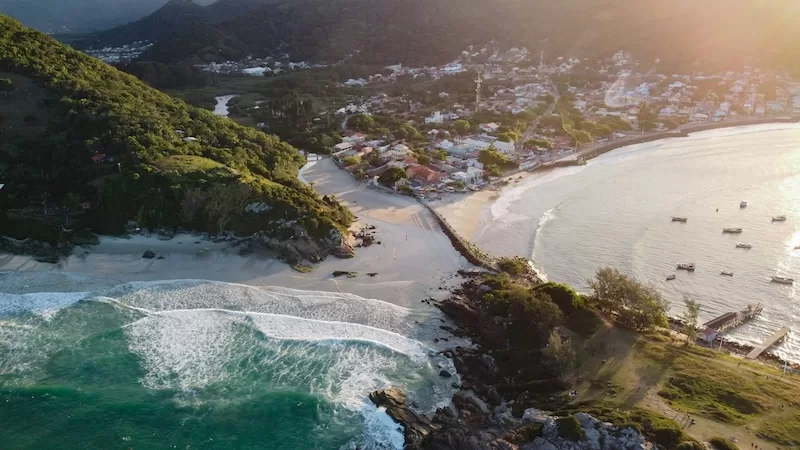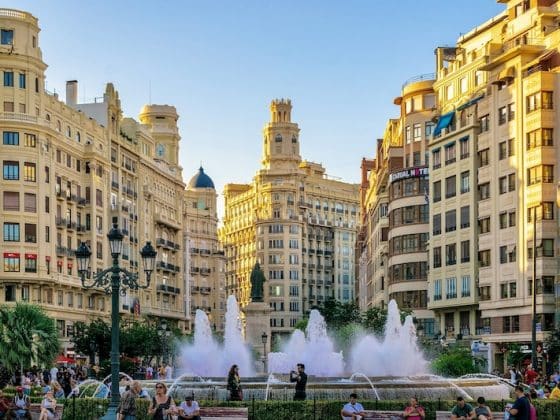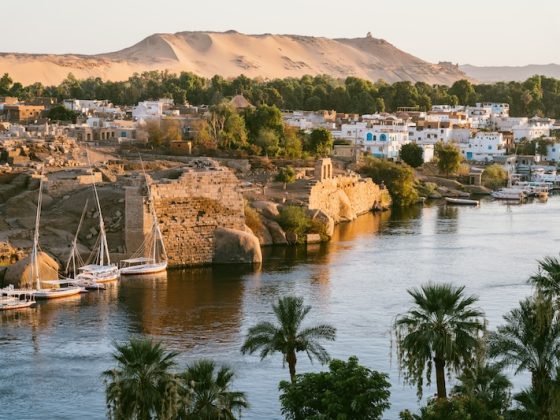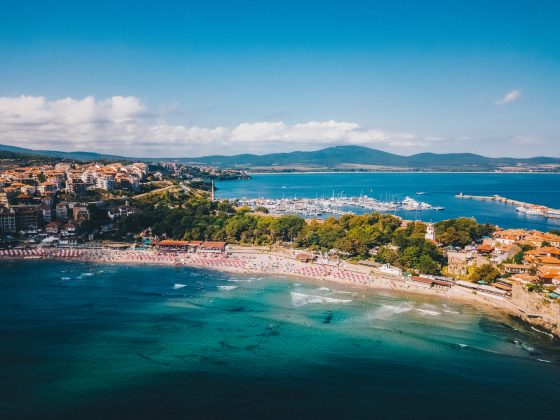Introduction
If you’ve been daydreaming about new horizons, you’re likely thinking about finding great places to live in South America: cities that combine affordability, culture, climate, safety, and connectivity. South America’s diversity means you can find coastal enclaves, Andean havens, or modern metropolises, each offering unique advantages. However, not every place will align with your priorities.
But finding the right fit takes more than scrolling photos. In this guide, we’ll explore South America’s top cities to live, compare what really matters, and share practical insights to help you make the move that’s right for you.
What Makes a City a Great Place to Live?
Key Factors to Consider
Before jumping into names and rankings, it’s worth asking: what actually makes a city great to live in? The answer isn’t universal. For some, it’s waking up where the ocean whispers outside your window. For others, it’s clean streets, good Wi-Fi, and a sense of safety when walking home at night. Still, a few key ingredients consistently define livable cities across South America:
- Cost of living: the backbone of any relocation plan: rent, groceries, transport, and daily comfort.
- Safety and security: a sense of ease in your surroundings, low crime rates, and communities that look out for each other.
- Healthcare and infrastructure: access to quality hospitals, stable electricity, clean water, and strong internet.
- Connectivity and transport: airports that keep you linked to home, and public transit that makes local life effortless.
- Climate and environment: from year-round spring weather to tropical breezes or cool mountain air, your ideal climate shapes your happiness.
- Cultural life and community: art, food, nightlife, and how easily you can connect with locals and fellow expats.
- Visa and residency ease: how straightforward it is to stay long term without bureaucratic headaches.
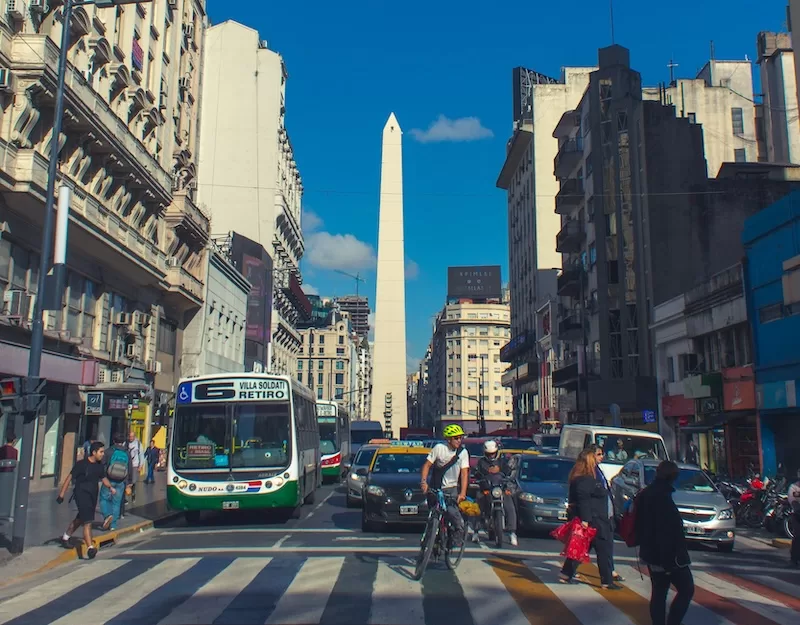
How to Find Your Perfect Fit
Choosing where to live isn’t about chasing someone else’s dream; it’s about mapping your own. Think of it like creating a personal blueprint:
“I want a city where my dollar goes far, but I also need good healthcare and a calm neighborhood.”
Or maybe: “I’m a digital nomad who needs fast internet, coworking spaces, good nightlife, and a laid-back beach nearby.”
Once you define what matters most (budget, climate, culture, or career) the idea of a “great city” becomes personal. From there, finding your match in South America becomes less of a gamble and more of an adventure waiting to happen.

Read more like this: The 3 Best Places to Retire in South America
Top Cities and Regions to Consider
South America is vast and no two cities feel the same. Some are high-altitude colonial gems with cobblestone streets, others are coastal capitals where the ocean sets the rhythm of life. Below are some of the great places to live in South America, carefully chosen for livability, community, infrastructure, and long-term value. (Order is not ranking.)
Medellín, Colombia
Often called the “City of Eternal Spring,” Medellín offers pleasant year-round weather, strong infrastructure, and an active expat/digital nomad community.
Pros:
- Affordable cost of living (around 50% lower than most U.S. cities).
- Excellent climate, modern public transport, and strong healthcare options.
- Vibrant expat and digital nomad community with frequent networking events and coworking hubs.
Cons:
- Pockets of petty crime, especially outside main residential zones.
- Income inequality remains visible.
- Reliable, but location-dependent connectivity: Medellín’s internet is strong overall, but the quality of fiber connections, backup options, and nearby coworking spaces can vary a lot from one neighborhood to another.
Best Neighborhoods:
- El Poblado: Medellín’s most upscale area with cafés, restaurants, and luxury apartments.
- Laureles: More residential and traditional, popular with long-term expats.
- Envigado: A quieter suburb with a strong community feel and family-friendly vibe.
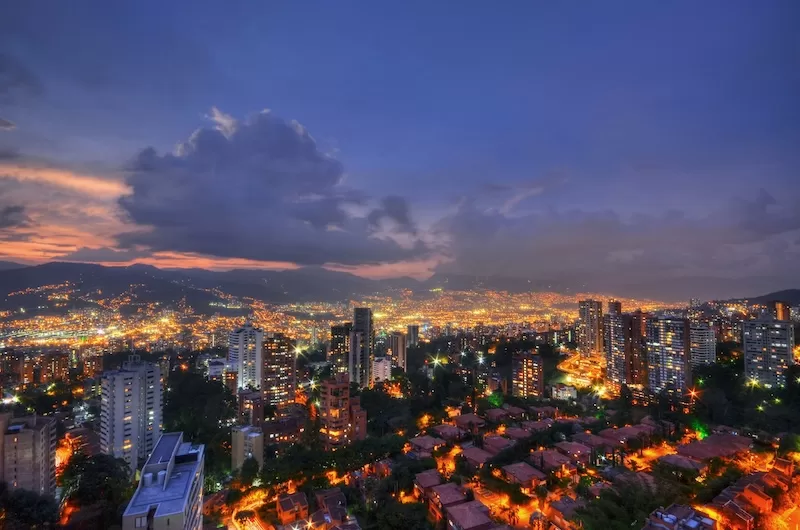
Montevideo, Uruguay
Montevideo is a chill capital on the Río de la Plata where beach life and urban life merge. Uruguay’s political stability, strong institutions, and laid-back lifestyle make it a consistent favorite for expats seeking security and quality of life.
Pros:
- Progressive governance and one of Latin America’s safest capitals.
- Reliable utilities, healthcare, and low pollution levels.
- Walkable coastal paths (the Rambla) and a strong café culture.
Cons:
- Higher import taxes and cost of goods.
- Slower bureaucracy and fewer international flight connections.
Best Neighborhoods:
- Pocitos: Coastal and modern, full of cafés and apartments with ocean views.
- Punta Carretas: Affluent, safe, and great for retirees or professionals.
- Ciudad Vieja: The old town, with charming architecture and cultural spots, though quieter at night.
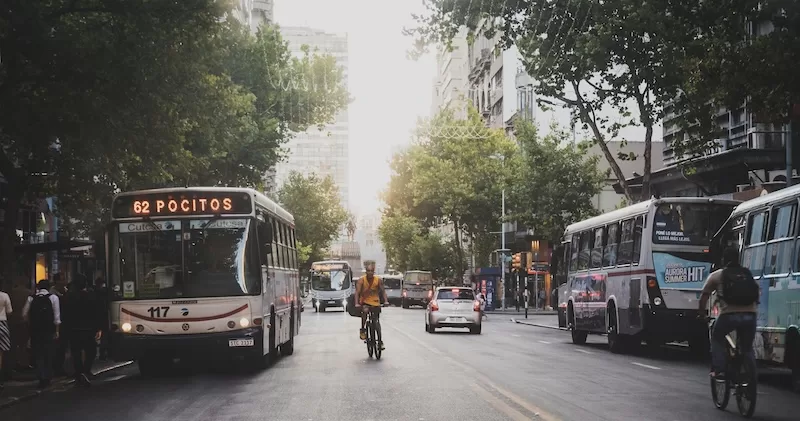
Santiago, Chile
Modern, efficient, and surrounded by the Andes, Santiago combines the feel of a major financial hub with easy escapes to vineyards and ski resorts. Chile’s high human development index and business-friendly environment make it ideal for professionals and families.
Pros:
- Excellent public transportation, healthcare, and safety record.
- Proximity to mountains and beaches within a couple of hours’ drive.
- Stable economy and growing tech sector.
Cons:
- High cost of living in top districts.
- Occasional air pollution during winter months.
Best Neighborhoods:
- Providencia: Central and convenient, full of parks and restaurants.
- Las Condes: Santiago’s “business district,” clean, secure, and family-oriented.
- Ñuñoa: A bohemian favorite with bars, markets, and cultural life.
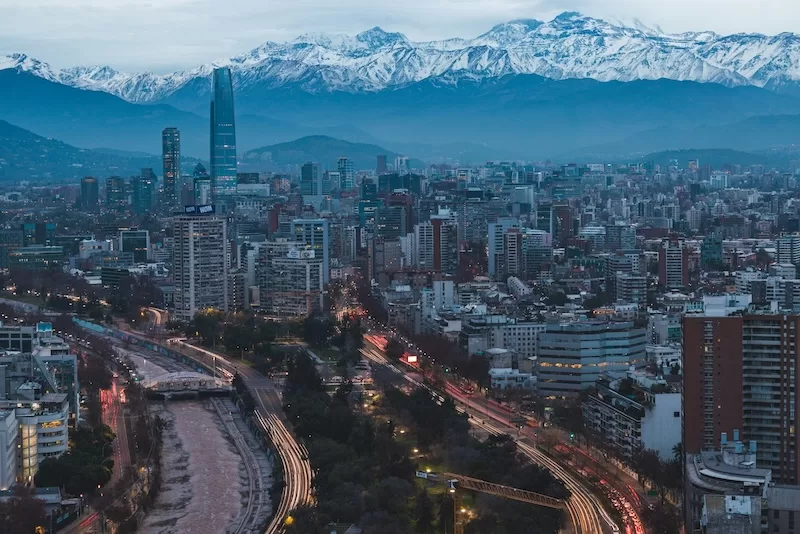
Cuenca, Ecuador
High in Ecuador’s Andes at 8,400 feet (2,560 m), Cuenca is a UNESCO World Heritage city known for colonial architecture and cobblestone charm. It’s a long-time darling of retirees drawn by affordable living, moderate weather, and friendly locals.
Pros:
- Low cost of living and good access to healthcare.
- Clean, safe streets and a calm pace of life.
- Growing and welcoming expat community. An increasing number of foreign residents means more international amenities, English-friendly services, and a stronger sense of belonging.
Cons:
- Smaller job market; limited nightlife compared to capitals.
- Altitude can take time to adjust to.
Best Neighborhoods:
- El Centro: Historic heart with colonial charm, museums, and cozy cafés.
- Puertas del Sol: Riverside views, quieter streets, modern apartments.
- Turi: Elevated hillside area with panoramic city views.
Florianópolis, Brazil
Known locally as Floripa, this island city off southern Brazil’s coast is where modern living meets beach-town soul. With 40+ beaches, a tech boom, and high safety scores for Brazil, it attracts entrepreneurs, surfers, and young families alike.
Pros:
- Beautiful natural environment and strong outdoor culture.
- Growing tech ecosystem.
- Higher safety than most Brazilian metros.
Cons:
- Portuguese language essential for long-term integration.
- Tourist seasons cause spikes in rent and traffic.
Best Neighborhoods:
- Lagoa da Conceição: Artistic, lake-side community popular with expats.
- Campeche: Beachfront and laid-back, ideal for families.
- Centro: Convenient for professionals, close to transport and offices.
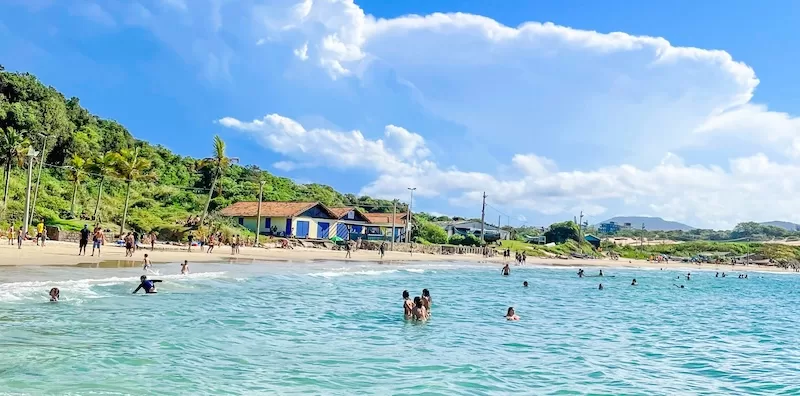
Buenos Aires, Argentina
Argentina’s capital is magnetic: grand boulevards, tango music, and a culture that feels slightly European combined with Latin warmth. Despite economic turbulence, Buenos Aires remains one of the most cultured and livable cities in South America.
Pros:
- Incredible arts, theater, and dining scene.
- Beautiful architecture and vibrant nightlife.
- Affordable for foreigners due to currency fluctuations.
Cons:
- Inflation and fluctuating prices can complicate budgeting.
- Bureaucracy and occasional protests.
Best Neighborhoods:
- Palermo: Trendy, leafy, and full of cafés, art galleries, and boutiques.
- Recoleta: Elegant and classic, known for Parisian-style architecture.
- San Telmo: Bohemian, historical, and full of weekend markets.
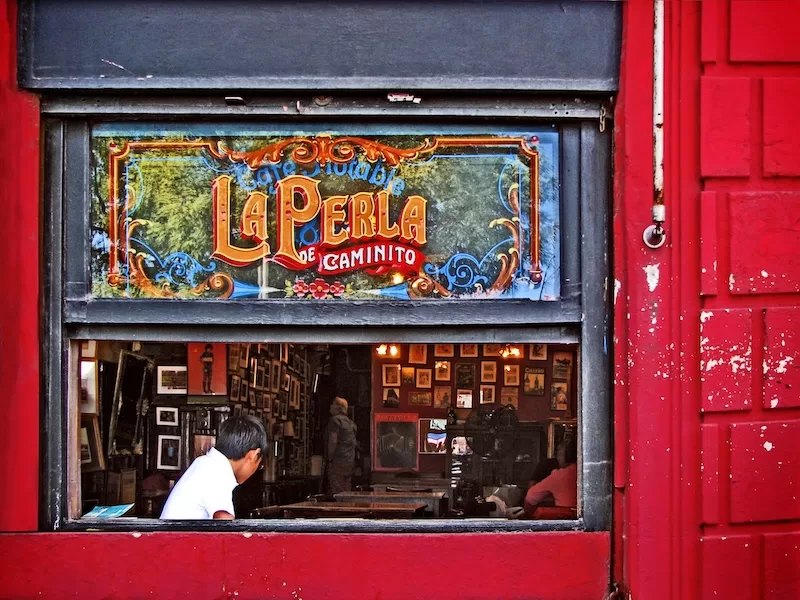
Lima & Arequipa, Peru
Lima, Peru’s capital, hugs the Pacific and combines colonial architecture with a culinary reputation rivaling the best in the world. Arequipa, inland and surrounded by volcanoes, offers a quieter lifestyle with lower costs and clean air.
Pros:
- Exceptional food scene and diverse cultural life.
- Affordable housing and growing expat communities.
- Access to both mountains and coast.
Cons:
- Lima traffic and humidity can be frustrating.
- Seismic activity and air quality concerns in some areas.
Best Neighborhoods:
- Miraflores (Lima): Upscale, ocean-view district with safety and amenities.
- Barranco (Lima): Artsy and relaxed, known for music and galleries.
- Yanahuara (Arequipa): Colonial architecture, local charm, and strong community feel.
Quito, Ecuador
Ecuador’s capital deserves mention for its mix of modern conveniences and dramatic mountain scenery. Set at nearly 9,350 feet (2,850 m), Quito offers cool weather, a UNESCO-listed old town, and access to the Amazon and Galápagos.
Pros:
- Central location for exploring Ecuador.
- Lower cost of living and good public services.
- International airport with strong connections.
Cons:
- Altitude adjustment required.
- Some petty crime in tourist areas.
Best Neighborhoods:
- La Floresta: Creative and youthful, full of cafés and art. This is where you’ll find indie bars, art-house cinemas, rooftop cafés, and cultural events that spill into the streets on weekends. It’s popular with young locals, artists, and international residents.
- La Carolina: Urban, modern, and close to parks and malls.
- Cumbayá: Suburban, warmer, and family-friendly.

Comparative Data: Cost, Safety, Quality of Life
Concrete numbers help sharpen comparisons.
Quality of Life Index
From Numbeo’s “South America: Current Quality of Life Index by City,” top performers include Florianópolis, Montevideo, Quito, Medellín, and Buenos Aires, with indexes between ~116 and 133. These scores factor in safety, healthcare, purchasing power, pollution, and commute time.
While European capitals still tend to dominate global rankings, several South American cities now outperform many North American ones in perceived day-to-day satisfaction, thanks to mild climates, access to nature, and lower living costs.
Cost of Living Rankings
According to Expatistan’s Latin America index (Oct 2025), Medellín’s cost-of-living index of ~75 continues to make it one of the most affordable large cities in the region, with a one-bedroom apartment in a central area averaging around $650 per month. In contrast, Lima (~82) and Santiago (~80) have higher housing and grocery costs, while Florianópolis (~77) sits comfortably in between, balancing quality with affordability. Montevideo is more expensive (index ~90), reflecting its higher import taxes and stronger currency, but many residents consider that a fair trade-off for Uruguay’s safety and infrastructure. Buenos Aires, meanwhile, has fluctuating affordability due to Argentina’s volatile inflation, meaning foreigners with stable foreign income can experience a surprisingly high standard of living.
Safety & Healthcare
Safety perceptions in South America vary greatly by city and even by neighborhood. Cities like Montevideo, Santiago, and Florianópolis consistently rank as the safest for expats and families, while Medellín, Lima, and Buenos Aires maintain safe central districts (El Poblado, Miraflores, Palermo) but have outer areas best avoided at night.
According to the Numbeo Crime Index 2025, Montevideo scores 43.6 (moderate) in the Safety Index, compared to Medellín’s 46.8, reflecting a gap but not a drastic one. For comparison, Milan, Italy has a Safety Index of 47, extremely close to Medellín’s.
Healthcare standards are also improving across the continent. Chile and Uruguay lead regional healthcare quality indexes, while Colombia’s system has been recognized by the World Health Organization as one of the best in Latin America, ranking above the U.S. in efficiency in some studies. Major cities such as Santiago, Medellín, Buenos Aires, and Montevideo host internationally accredited hospitals, and private care remains affordable compared to North American costs; often 50–70% cheaper for routine and specialized treatments.
In short:
- Best overall value: Medellín, Florianópolis, Cuenca
- Best safety & healthcare: Montevideo, Santiago, Quito
- Best for lifestyle & culture: Buenos Aires, Lima
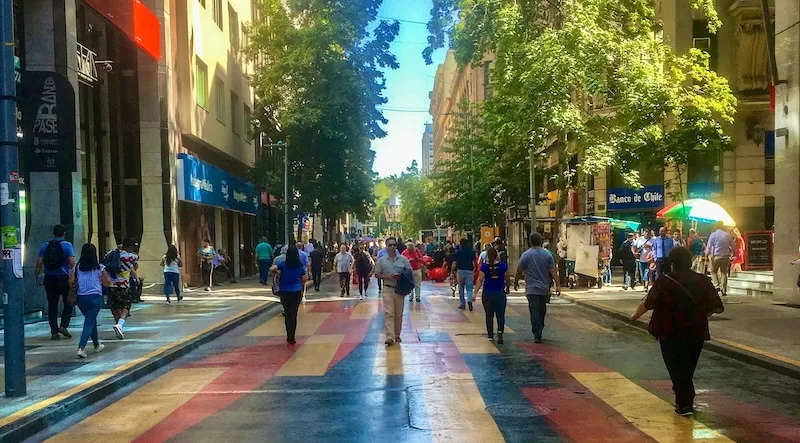
What Type of Expat or Resident Fits Each City?
Digital Nomads & Remote Workers
Cities with strong internet, coworking, and community (like Medellín, Santiago, Buenos Aires) are ideal. Medellín often tops digital nomad lists.
Retirees
Quiet, stable, moderately priced cities like Cuenca, Montevideo, or parts of southern Chile are excellent picks.
Families
If schooling, safety, and infrastructure matter most, Montevideo, Santiago (in safe districts), and Buenos Aires are strong candidates.
Entrepreneurs & Business Folks
Larger economic hubs (Santiago, Buenos Aires, Medellín) offer more market access, connectivity, and infrastructure.

Practical Tips for Moving & Adapting
Visas & Residency
Every country in South America has its own entry doors. Some (like Colombia, Ecuador, and Brazil) now offer digital nomad visas, allowing remote workers to live legally for one or two years with proof of income.
Others, such as Uruguay and Paraguay, make retirement visas simple for those with steady pensions.
If your goal is long-term residency, nations like Chile and Argentina provide clear pathways to permanent status after a few years.
Processing times can vary, and requirements change often, so it’s wise to check official government sites or work with a reputable immigration consultant before you pack your bags.
Language & Integration
Spanish and Portuguese are the keys that unlock daily life. Locals appreciate even basic effort: a simple “buenos días” or “obrigado” goes a long way toward connection. Enrolling in language classes or joining language-exchange meetups can transform your social experience, helping you move from tourist to neighbor. Many expats describe a moment when their city “clicks”. It’s usually when they can order lunch, make small talk with a taxi driver, or negotiate rent without Google Translate. Aim for that moment early.
Housing & Neighborhood Selection
Before signing a lease, spend at least a few weeks exploring different neighborhoods. What looks perfect online may feel completely different once you hear the local soundscape: street vendors calling, roosters at sunrise, café chatter spilling onto sidewalks.
Use local real estate agents or expat Facebook groups to get realistic prices and avoid inflated short-term listings. In most major cities, central downtown areas are best for short stays, but for long-term living, safer residential zones like El Poblado (Medellín), Providencia (Santiago), or Pocitos (Montevideo) often strike the right balance between comfort and community.
Local Culture & Daily Life
Life in South America moves to the beat of a unique drum. People greet strangers. Meals stretch into conversations. Bureaucracy moves slower, but friendships form faster. Expect plans to run late, music to play loudly, and kindness to appear unexpectedly; from a neighbor offering fruit to a bus driver waiting an extra minute so you can hop on. Adapting means letting go of rigid expectations. Think of it like learning a new dance: awkward at first, then exhilarating once you find your footing. Embrace spontaneity, savor the local markets, and remember that “mañana” doesn’t always mean tomorrow. Sometimes it simply means “not now.”
FAQs
Q1: Which city is the safest in South America to live in?
Safety varies by neighborhood, but Montevideo, parts of Santiago, and upscale districts in Medellín often rank among safer options.
Q2: How expensive is living in Medellín compared to the U.S.?
Many expats report Medellín costs 30–50 % lower than equivalent U.S. cities for housing, food, and services.
Q3: Is English widely spoken?
In major cities, you’ll find English-speaking professionals, but most daily life is conducted in Spanish or Portuguese.
Q4: Can I get good healthcare in these cities?
Yes. Major cities like Santiago, Montevideo, Medellín, and Buenos Aires have private hospitals with high standards.
Q5: What is the best city for retirees?
Cuenca, Montevideo, and parts of southern Chile are frequently cited as top retiree destinations.
Q6: Do I need a visa to live long-term in South America?
Most countries offer temporary residency permits, digital nomad, or retirement visas. Requirements vary, but proof of income and clean background checks are standard.
Q7: How easy is it to find housing as an expat?
Quite manageable in major cities. Platforms like Airbnb or Facebook Marketplace help for short stays, while local agents or expat networks are best for long-term rentals.
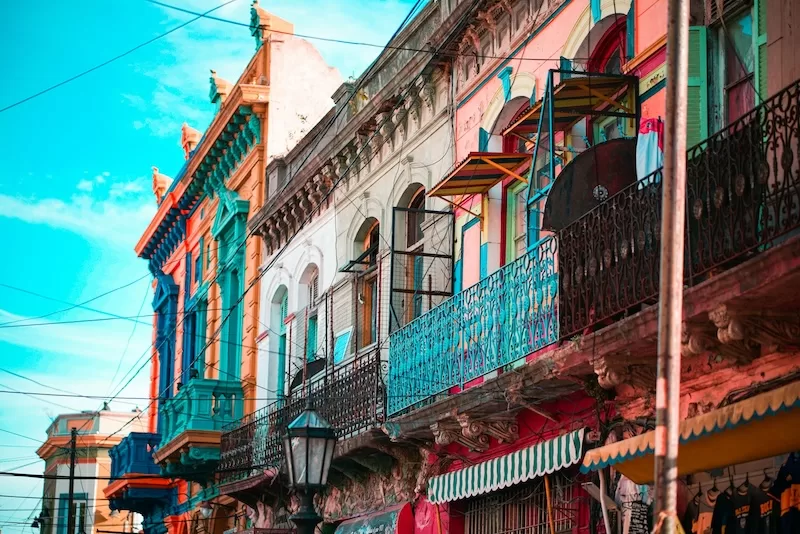
A Continent of Possibilities
Each city listed here tells a different story: the café-lined boulevards of Buenos Aires, the mountain air of Cuenca, the sea breeze off Montevideo’s Rambla. Some people fall for Medellín’s eternal spring; others find peace in Santiago’s order or Florianópolis’ coastal calm.
The best part? There’s no single right answer. The continent is vast enough to hold every kind of dream: a quiet home in the Andes, a tech hub by the sea, a city apartment filled with music and conversation. What unites them all is a shared sense of vitality. People who greet strangers, food that slows you down, and a lifestyle that reminds you of what really matters.
If you’re ready to start your search for great places to live in South America, don’t stop at research — come and feel it for yourself. Spend a few weeks in the city that calls to you, talk to locals, learn a few words of Spanish or Portuguese, and let the place unfold at its own pace. Because South America isn’t just a destination. It’s a way of life, full of warmth, rhythm, and possibility waiting for you to join in.
Contact Author
"*" indicates required fields
Stay Ahead on Every Adventure!
Stay updated with the World News on Escape Artist. Get all the travel news, international destinations, expat living, moving abroad, Lifestyle Tips, and digital nomad opportunities. Your next journey starts here—don’t miss a moment! Subscribe Now!
